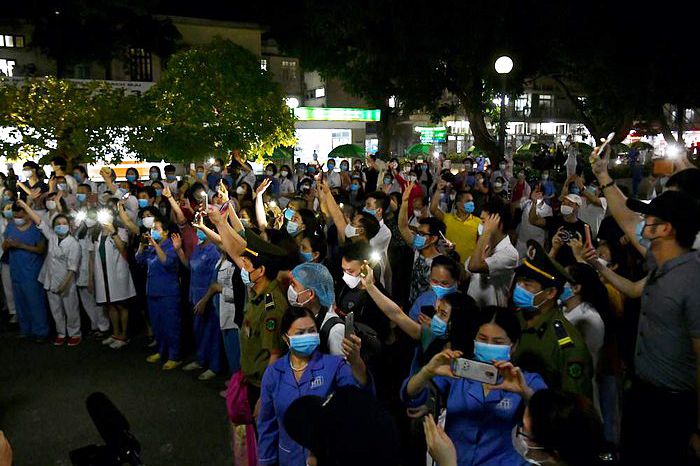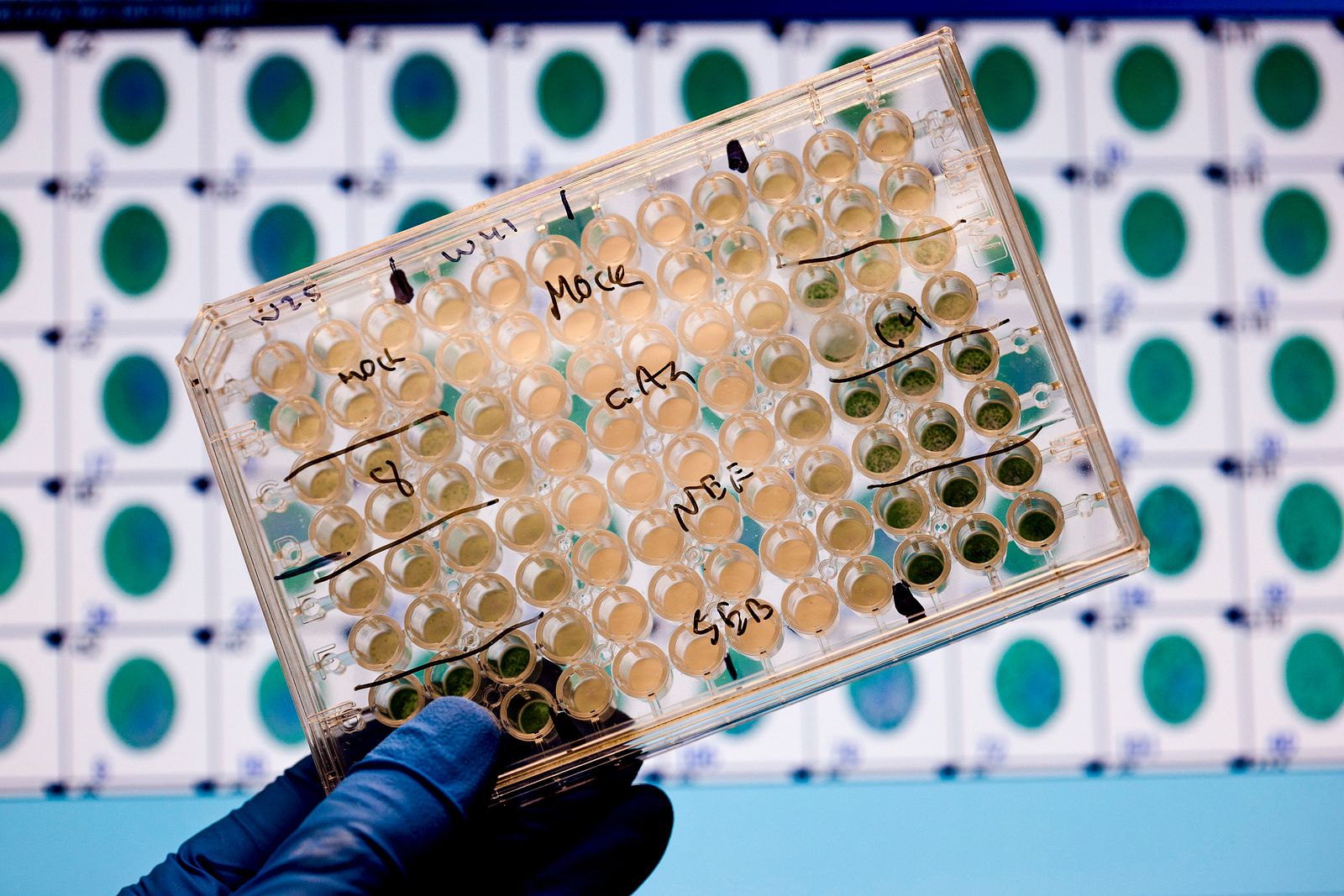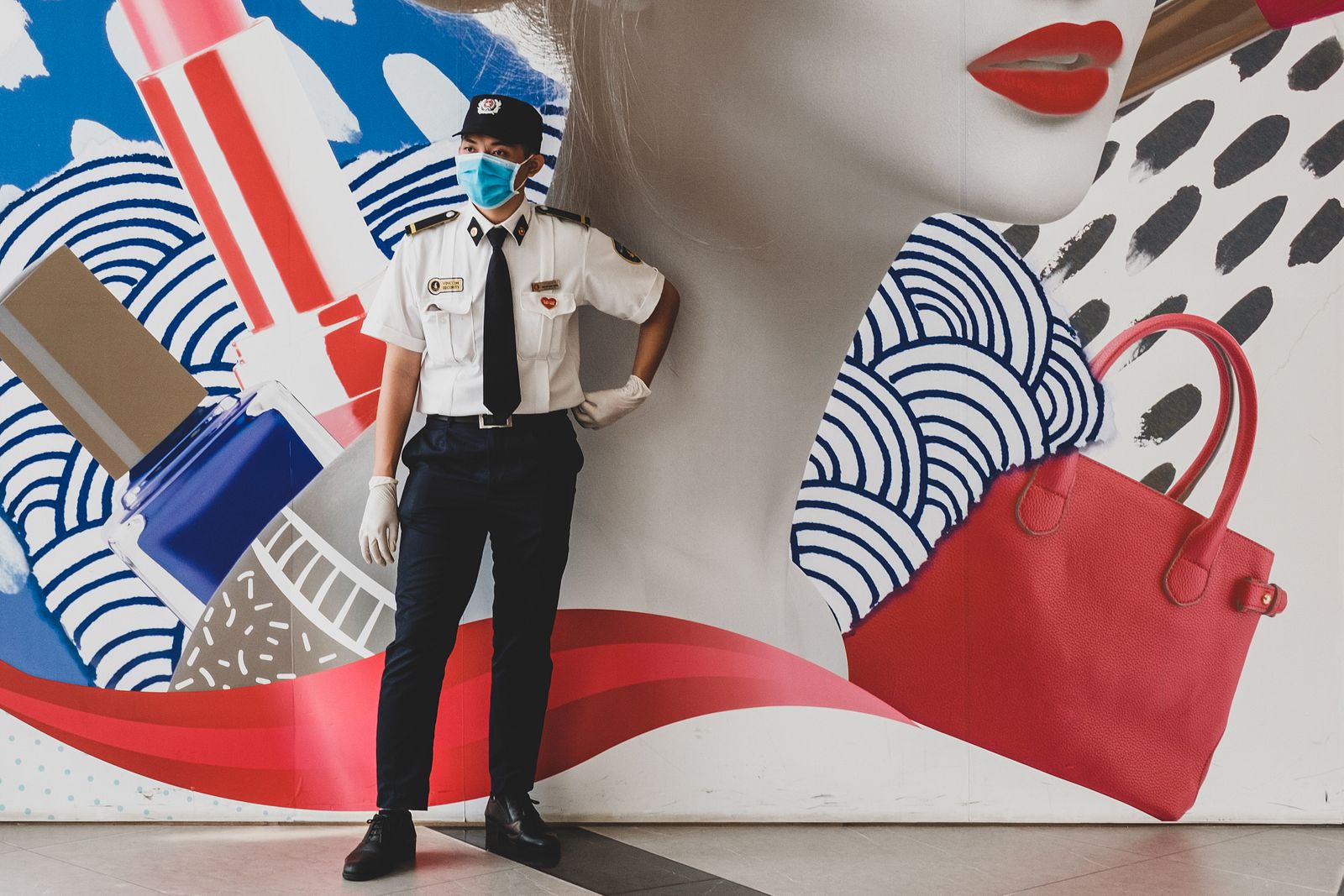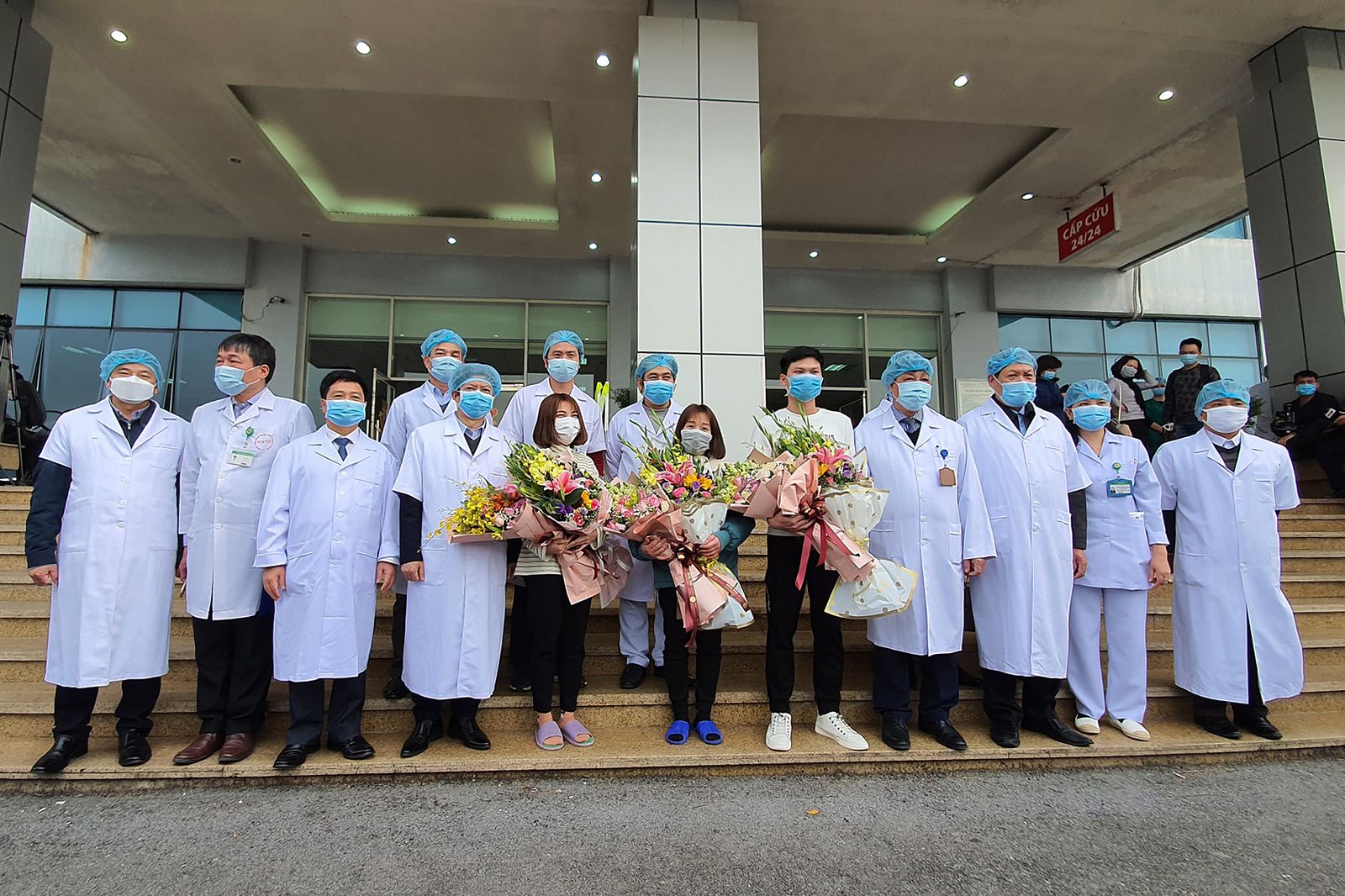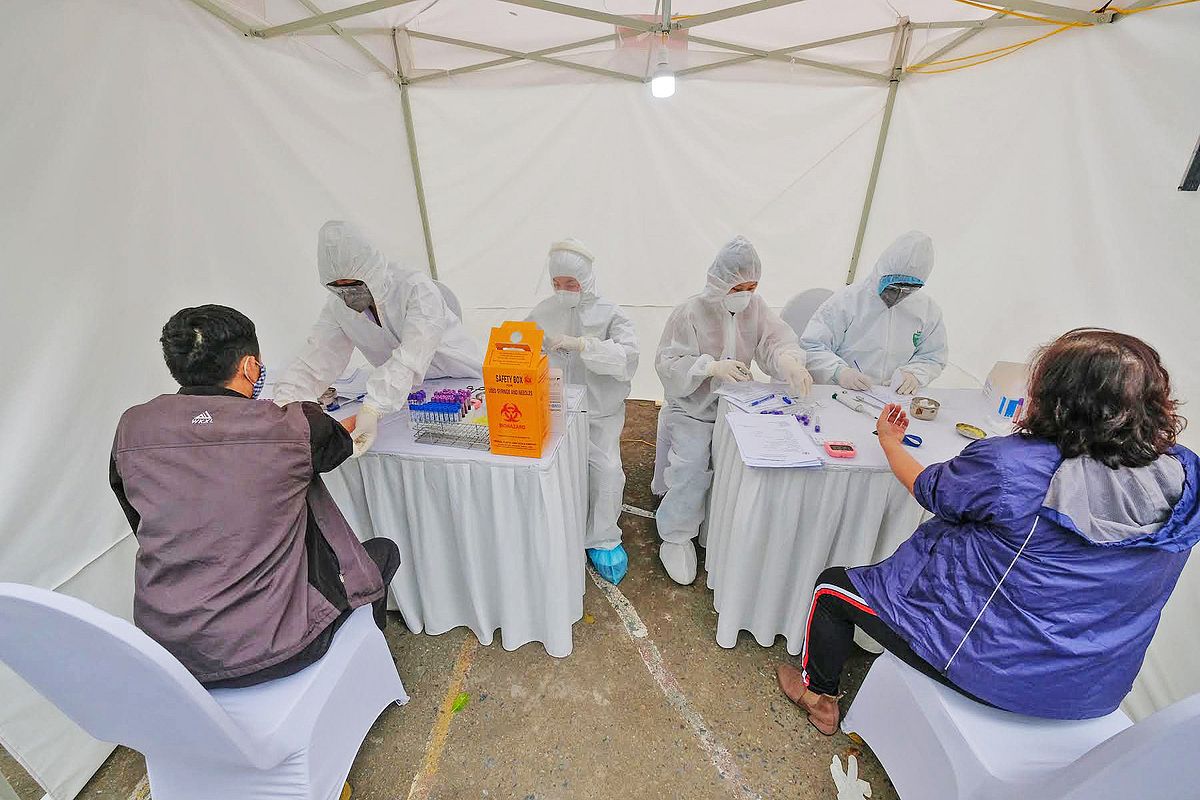Vietnam’s total number of COVID-19 infections remains within its healthcare capacity, so critical patients can receive top-level attention from national experts.
As of the morning of May 18, Vietnam has 320 coronavirus patients, 60 of which are still active. All of the recent cases have been Vietnamese nationals returning from abroad, including the UAE and Russia. While most patients in Vietnam are either asymptomatic or exhibit only mild symptoms, in a handful of cases, their condition has deteriorated to the point of requiring life support.
Case 19
Case 19 is a 64-year-old woman from Hanoi, the aunt of Case 17, the first COVID-19 patient in Hanoi and of Vietnam’s second wave of infections. According to Nhan Dan, she was admitted to the National Hospital of Tropical Diseases on March 6 and, at the time of writing, remains the patient with the longest hospital stay due to the novel coronavirus.
During her treatment, she faced grave danger a few times, with 17 days on ECMO and three instances when her heart stopped. ECMO is short for extracorporeal membrane oxygenation, a critical form of life support for patients whose heart and lungs can’t effectively perform gas exchange on their own.
As of last week, Case 19’s health has improved significantly with no fever and no longer requiring ECMO. She can breathe on her own for most of the day, and is placed on a ventilator at night. She can have short conversations, consume food, and is undergoing therapy to regain full mobility.
Case 91
Case 91 is currently Vietnam’s most severe COVID-19 case. He’s a 43-year-old British pilot for Vietnam Airlines. Case 91, the first reported patient from Saigon’s Buddha Bar cluster, started exhibiting respiratory distress on March 17 and tested positive for the coronavirus the following day. Over the course of his stay at the Ho Chi Minh City Hospital for Tropical Diseases, his condition has worsened significantly, requiring ECMO full-time.
Experts attribute his decline to cytokine storms, an aggressive immune response in which the body attacks its own cells. His high body mass index — nearly 100 kilograms with a height of 1.83 meters — is also a risk factor, according to doctors. The pilot’s body is also not reacting to any anticoagulant drugs available in Vietnam, so the hospital has been using imported medicine.
According to the Ministry of Health, as of May 16, Case 91 is stable, non-febrile and has tested negative for the coronavirus five consecutive times. However, his lung function has dropped to only 10%, so the ministry is looking into carrying out lung transplants to save him.
Since news of the transplant made national headlines, Tuoi Tre reports that as many as 50 people from Saigon and across Vietnam have contacted the Vietnam National Coordinating Centre for Human Organ Transplantation (VNHOT) seeking to donate part of their lung to the pilot.
One of the aspiring donors was NTB, a 50-year-old Saigoneer who contacted Tuoi Tre about his donation wishes. According to B., he sympathized with the pilot’s family situation of being an orphan living alone in a foreign country away from home, so he talked to his wife about moving forward with the humanitarian decision.
Dr. Du Thi Ngoc Thu from the organ transplant department of Cho Ray Hospital also confirmed with the news source that her office has also fielded around 20 calls from people wishing to donate. Thu shared that she was “moved to see receive the calls,” even though they were turned away as Vietnam requires that the lungs must come from patients who are brain-dead.
Case 161
At 88 years old, Case 161 was Vietnam’s oldest COVID-19 patient. She was part of the Bach Mai Hospital cluster in Hanoi and tested positive for the virus on April 14. The patient presented a challenge for medical professionals due to her underlying conditions of brain hemorrhage and partial paralysis. However, the patient responded well to the treatment without any further complications and was declared free of COVID-19 on May 8. She has since been transferred back to Bach Mai to resume the course of treatment for her brain condition.
Case 278
Case 278 is a 50-year-old woman who returned to Vietnam from the UAE on one of the humanitarian flights by Vietnam Airlines. She was one of the 17 who tested positive for the coronavirus on May 7 and was treated at the Bac Lieu General Hospital. Due to exacerbating respiratory distress, she was transferred to the HCMC Hospital of Tropical Diseases on May 10 with high fever, cough and breathing difficulty.
According to an update from Phap Luat, as of May 13, she’s non-febrile, though lung scans show additional damage and she needs supplemental oxygen.


